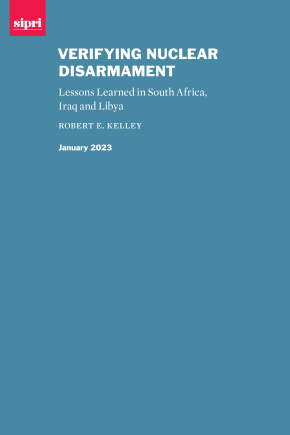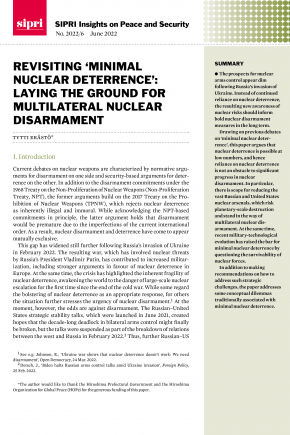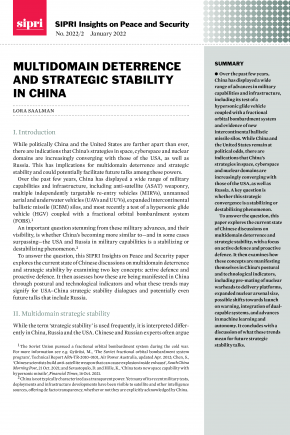_______________________________________________Sobre el rol de los países bajo paraguas nuclear, y ejemplos de cuando rompen con la "disciplina de partido".Abrazos,Quique Sánchez OchoaTècnic de projectesCentre Delàs d'Estudis per la Pau / IPB-GCOMSqsanchez@centredelas.org
93 441 19 47 - 635 989 645
www.centredelas.org
www.demilitarize.org
www.bancaarmada.org
www.pacifist.app
La informació continguda a aquest missatge és reservada i està prohibida la seva utilització o divulgació per a altres finalitats, en compliment de la LOPD, la LSSI i la normativa de seguretat vigent. Si per error heu rebut aquest correu electrònic, si us plau feu-nos-ho saber i elimineu-lo a continuació.
---------- Forwarded message ---------
De: SIPRI <update@sipri.org>
Date: dc., 7 de juny 2023 a les 14:24
Subject: New SIPRI Publication—The Role of Umbrella States in the Global Nuclear Order
To: <qsanchez@centredelas.org>
View the online version

STOCKHOLM INTERNATIONAL
PEACE RESEARCH INSTITUTE



New SIPRI Publication:
07 June 2023The independent resource on global peace and security
The Role of Umbrella States in the Global Nuclear Order
Today, SIPRI releases a paper that assesses the scope of umbrella states’ agency in maintaining, shaping and potentially challenging the global nuclear status quo.
Download the SIPRI Insights Paper here.
This paper focuses on countries under extended nuclear deterrence arrangements, or ‘umbrella’ states. The paper explores the ways in which umbrella states both in the Asia-Pacific region and in Europe have supported prevailing nuclear deterrence practices or distanced themselves from such practices.
While there is a tendency for these countries to side with their nuclear-armed patron on matters related to nuclear weapons and nuclear disarmament norms, at times they have taken steps away from the allied mainstream position by advocating for anti-nuclear weapon policies. As long as extended deterrence has a nuclear dimension, allies will need to balance between normative pressures to support nuclear disarmament and alliance commitments that require at least passive support for nuclear deterrence practices.
Tytti Erästö (Finland) is a Senior Researcher in the SIPRI Weapons of Mass Destruction Programme, focusing on nuclear disarmament and non-proliferation issues.
For information and interview requests contact Amelie Lutz, SIPRI Communications Officer, (amelie.lutz@sipri.org, +46 76 628 61 33).
Related Publications
Stockholm International Peace Research Institute (SIPRI) SIPRI is an independent international institute dedicated to research into conflict, armaments, arms control and disarmament. Established in 1966, SIPRI provides data, analysis and recommendations, based on open sources, to policymakers, researchers, media and the interested public.
--This message was sent to qsanchez@centredelas.org by update@sipri.org
To forward this message, please do not use the forward button of your email application, because this message was made specifically for you only. Instead use the forward page in our newsletter system.
To change your details and to choose which lists to be subscribed to, visit your personal preferences page
Or you can opt-out completely from all future mailings.
Lista de correo Grupo Motor Alianza por el Desarme Nuclear -- grupomotor-desarmenuclear@grups.pangea.org
Para desuscribirse envíe un email a grupomotor-desarmenuclear-leave@grups.pangea.org



